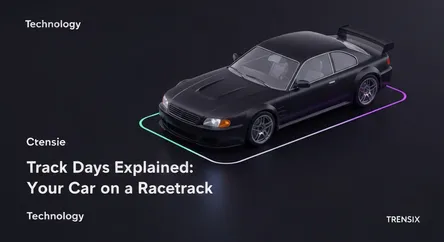Technology
Track Days Explained: Your Car on a Racetrack

Ever wanted to drive your car on a real racetrack? Discover what a track day is, why it's trending, and how it can make you a better driver.
What is it?
A track day, often called a High-Performance Driver Education (HPDE) event, is an organized, non-competitive opportunity for car enthusiasts to drive their own street cars on a dedicated motorsport circuit. Unlike racing, the goal isn't to be the fastest but to learn the principles of high-performance driving in a safe and controlled environment. Participants are typically grouped by skill level, from novice to advanced, and often receive instruction from experienced coaches. The focus is on improving car control, understanding vehicle dynamics, and learning the proper racing line around the track.
Why is it trending?
The popularity of track days has surged as modern cars have become increasingly capable right from the factory. Drivers want a legal and safe outlet to explore their vehicle's performance potential beyond the constraints of public roads. The influence of automotive media, racing video games, and social media has also demystified the experience, making it seem more accessible. It offers a unique thrill and a tangible way for enthusiasts to connect more deeply with their cars and improve their driving skills in a structured, professional setting.
How does it affect people?
Participating in a track day significantly enhances a driver's skills. It teaches crucial techniques like braking, cornering, and managing weight transfer, leading to a much better understanding of car control. These skills directly translate to safer, more aware driving on public streets. Beyond skill development, it provides a huge adrenaline rush and a profound sense of accomplishment. It also fosters a strong sense of community, allowing participants to share their passion with other like-minded individuals.